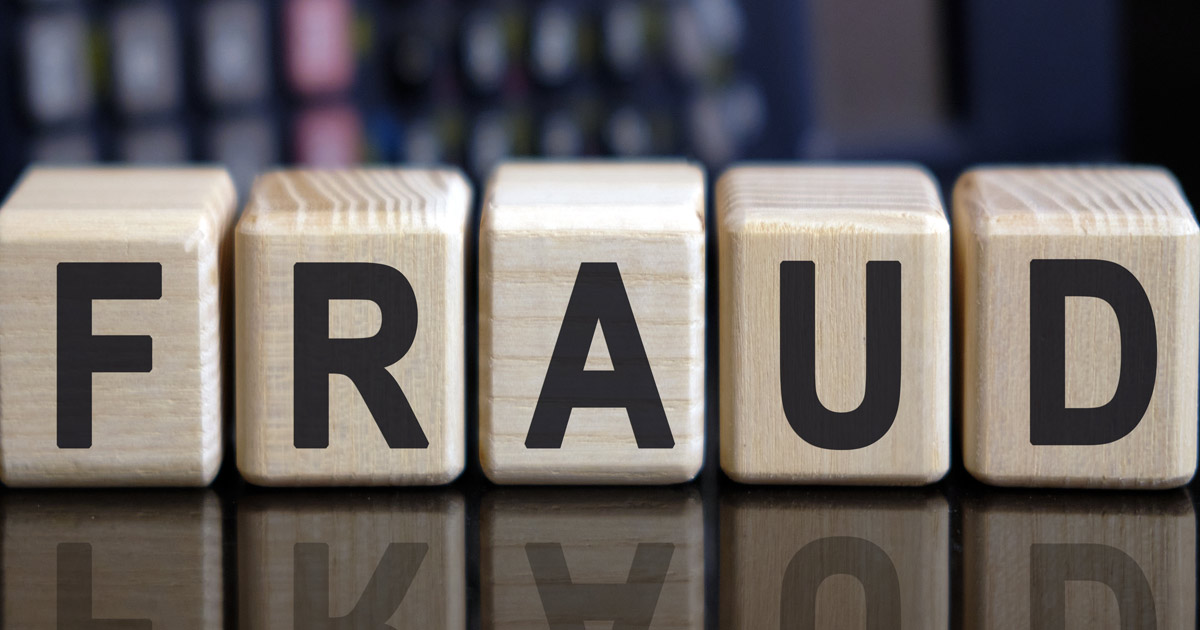Student loan debt can be overwhelming, particularly for those pursuing multiple or advanced degrees requiring additional years of education. Students pursuing certain degrees, such as the medical field, can incur a decade or more years of loans to complete their chosen programs. Loans that can take up to 20 or more years to pay off. Such debt can be burdensome and impact a person’s quality of life, including the ability to own housing, personal transportation, or send their children to college.
Scammers prey on those overwhelmed with student loan debt through fraudulent offers to consolidate, defer, lower, or eliminate the debt entirely. Creating false student loan assistance programs, scammers typically offer unnecessary services and charge high fees for items generally free in federal government programs. Ultimately, all that is accomplished is that those desperate to reduce or eliminate student loan debt are left with even more debt, often thousands of dollars more.
The most common types of student loan scams are consolidation and debt relief. Consolidation scams offer to combine multiple loans into one with only one payment and possibly lower interest rates. Debt relief scams offer to reduce or eliminate student loan debt entirely.
It can be easy to become entangled in offers that promise to reduce or eliminate student loan repayment, especially for those experiencing financial difficulties. Try not to get caught up in the hype and hope the debt will be forgiven; if the offer sounds too good to be true, it is. In addition, you can protect yourself against fraudulent offers in several ways.
Know Your Loan Servicer
Be sure to know the federal loan servicer who will be collecting your repayments on behalf of the financial lender. If you have additional separate loans, you may have a different servicer for each one. If you do not know your servicer, you can obtain that information from the Federal Student Aid Information Center.
Create an online account where you can access your account and track its progress. Make note of your servicer’s return and email addresses in case you receive correspondence from a fraudulent company.
Be Wary of Fees
The offer is fraudulent if the company requires upfront costs to provide you with repayment assistance or debt elimination. Under Federal Trade Commission (FTC) regulations, it is illegal for companies to charge for services before actually helping you. Additionally, there are no legitimate third-party offers that your loan servicer does not already offer free of charge, including different repayment, consolidation, or rehabilitation plans.
Question Claims of Immediate Relief
Companies offering immediate or fast results in reducing or eliminating your student loan debt are scams because these options do not exist. There are federal student loan forgiveness programs and grants, but these can only be granted after a specific number of qualifying payments have been made. Complete discharge of the loan is rare and only in cases of school-perpetuated fraud, death, disability, or bankruptcy.
Guard Your Information
It is common for scammers to ask for your Federal Student Aid identification number, claiming it is necessary to access your loan contracts and make the promised alterations. Legitimate companies will never ask for this information, and providing it to others puts you and your account at serious risk.
Once armed with the information, scammers can access your account, redirect payments to personal accounts, and alter your address and communication information so you will not receive delinquent notices. You could be liable for reimbursing all payments stolen from you.
Protect Your Identity
Student loans are not immune from identity theft and can wreak significant damage to all aspects of your life and affect your ability to secure loans, housing, and even jobs. Scammers will use another’s identity to acquire student loans, and thefts of this nature may not be caught for years after the person has obtained a degree and the loan repayments begin. In some cases, you could be listed as a co-signer on student loans without your knowledge or consent, making you liable for the debt.
Check Affiliations
Offers from companies stating the program is affiliated with the U.S. Department of Education but is not a government agency with representatives are not legitimate. Although fraudulent companies will attempt to push the offer as quickly as possible, take your time to research the company and all aspects of the offer. Doing so can save you thousands of dollars and emotional distress if you determine the offer is fraudulent before signing any financial commitments.
What Should You Do if You Think You Have Been Defrauded?
Discovering your identity has been stolen or you have been defrauded regarding your student loan can be a devastating experience. If you believe you have been defrauded, you should take the following steps:
- Freeze your credit. If you believe you have been defrauded regarding your student loan debt, contact the major credit reporting agencies and request your credit be frozen. Doing so will cut off access to your credit report and protect you from further financial theft or false representation on financial documents.
- Review your credit report. Request a copy of your credit report from the major credit reporting agencies, Experian, Equifax, and TransUnion, and review it carefully for any other signs of theft and fraud. Often, scammers will access other forms of credit using your identity and personal information. All of the companies offer one free copy of your report per year.
- Contact your loan servicer. Alert your student loan servicer of the fraud and discuss your options for repairing the damage. You may be eligible for a temporary forbearance while the fraud is being investigated, which will suspend payments until the process is complete.
- Inform your school. Contact your college or university to alert them of the fraud, whether you have graduated or are attending. Schedule a meeting with the school’s financial aid office to review your loan and any student accounts to determine the extent of the identity theft and fraud.
- File a police report. Once you have obtained enough information to demonstrate the extent of the fraud, report it to your local law enforcement agency. Taking this step will help increase your chances of not being held liable for the loan in question.
- Alert the government. File an identity theft report to the FTC to develop a personalized recovery plan and the DOE’s Office of Inspector General to begin a federal investigation.
In some instances involving federal student loan fraud perpetrated by a higher education institution, the DOE may grant loan forgiveness under a regulation known as “borrower defense.” This only applies to federal direct loans taken out for payments to the school in question, which misleads the borrower through false promises regarding costs, school accreditation, and future employment prospects. Additionally, to qualify under borrower defense, the school must have violated state or federal laws and standards when you received the loan.
Pittsburgh Consumer Fraud Lawyers at East End Trial Group Advocate for Clients Misled by Fraudulent Student Financial Aid Companies
Pursuing a college education is expensive, and most students turn to loans to pay the costs. For many, this leads to massive debt. Scammers target student loan recipients with false promises of debt relief, reduction, or elimination. If you believe you have experienced student loan fraud, one of our experienced Pittsburgh consumer fraud lawyers at East End Trial Group is available to help undo the financial damage. Call us at 412-223-5740 or contact us online for a free consultation. Located in Pittsburgh, we serve clients throughout Pennsylvania.

 Call Us Today 412-223-5740
Call Us Today 412-223-5740
